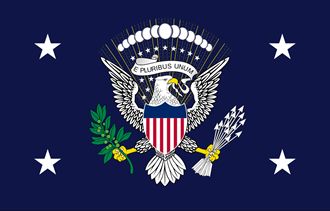 The US government has ruled that if data is on the internet, anywhere in the world, it has to be turned over to one of its spying organisations for processing.
The US government has ruled that if data is on the internet, anywhere in the world, it has to be turned over to one of its spying organisations for processing.
President Barack Obama’s administration is insisting that that any company with operations in the United States must comply with valid warrants for data, even if the content is stored overseas.
This means that anyone who uses an iPhone anywhere in the world will see their data inside a US government database.
Microsoft and Apple insist that enforcement of US law stops at the border, but the government seems to think that it rules the world.
A magistrate judge has already sided with the government’s position, ruling in April that “the basic principle that an entity lawfully obligated to produce information must do so regardless of the location of that information.”
Microsoft appealed and the case is set to be heard in two weeks.
The US government said that content stored online is not protected by Fourth Amendment protections as data stored in the physical world. It quoted a law put out by President Ronald Reagan called the Stored Communications Act (SCA). This said that overseas records must be handed over domestically when a valid subpoena, order, or warrant forces them. No one thought that the SCA stuffed up the Fourth Amendment so there is no need to change the laws.
However Microsoft said Congress has not authorised the issuance of warrants that reach outside US territory. It points out that the government cannot issue a warrant allowing federal agents to break down the doors of Microsoft’s Dublin facility.
Microsoft said that consumer trust in US companies is low in the wake of the Edward Snowden revelations and the government will make overseas operations impossible.
It has the backing of Apple, AT&T, Cisco, and Verizon agree. Verizon said if the government wins, it would produce “dramatic conflict with foreign data protection laws.” Apple and Cisco said (PDF) that the tech sector would be blacklisted by foreign governments.
Recently the senior counsel for the Irish Supreme Court wrote in a recent filing that a US-Ireland “Mutual Legal Assistance Treaty” was a way for the US government to obtain the e-mail held on Microsoft’s external servers.





